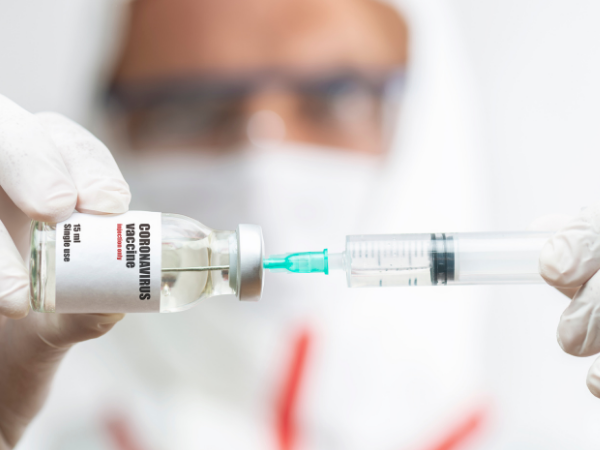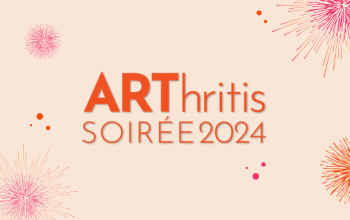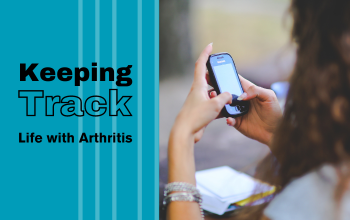Research Calms COVID-19 Vaccine Concerns
The Moderna COVID-19 vaccine, one of several approved COVID-19 vaccines in Canada, is safe and effective for patients living with rheumatic disease, according to new research out of Quebec.
“None of the patients in the study experienced severe adverse reactions to the vaccine and the majority who received two doses were able to develop antibodies,” said Dr. Inés Colmegna, a research scientist at Arthritis Research Canada. “Age, treatments received for rheumatic diseases and the presence of other medical conditions did not impact safety.”
This research was launched in February 2021 by Dr. Colmegna and Dr. Paul Fortin who is a senior scientist at Arthritis Research Canada. The goal: to evaluate immune responses to the Moderna COVID-19 vaccine in people with a rheumatic disease diagnosis. It specifically looked at individuals with rheumatoid arthritis and lupus, who often have impaired immune responses resulting from the disease itself and the medications needed to treat it.

Researchers asked three questions. Does age impact vaccine responses? Is the response to COVID-19 vaccine different based on the treatment patients receive for their rheumatic disease? How do people on medications that historically impact vaccine responses react to the vaccine?
“We wanted to know whether people with rheumatic conditions could generate immune responses similar to the general population and to identify specific groups of people who do not respond so we can find alternative ways to protect them from the virus,” Dr. Colmegna said.
Medications and the Immune System
The study also looked at patients on different medications, such as methotrexate, biologics and small molecules, so that researchers could say, “If a patient is on methotrexate, above or below age 65, they respond to the Moderna vaccine in X way.” The research also included patients taking more than 10 mg of prednisone as part of their treatment, as this drug can weaken vaccine-induced immune responses.
“We knew there were patients on drugs historically associated with lower vaccine responses, for example, prednisone, rituximab and cellcept,” Dr. Colmegna said.
Research in Fast Forward
This study is funded by the Government of Quebec and is unique in the sense that the government secured vaccines for people with rheumatic disease who were participants of the study.
“The government recognized the importance of this matter and secured vaccines for this study at a time when there weren’t a lot available,” Dr. Colmegna said.
Researchers began monitoring study participants prior to their first vaccine dose – taking blood samples before and after doses to properly measure the response to two doses of Moderna vaccine. A study like this would normally take several years from start to finish. So to have preliminary results in six months, and during a health crisis, is ground-breaking.
This was the result of work done by a large team that included research scientists, study coordinators, people working at the university vaccine centres, specialized laboratories analyzing the samples, statisticians and patient volunteers.
These findings will not only impact people with rheumatic diseases, they will also apply to other patients on similar medications such as cancer and transplant patients.
What’s next?
Before the pandemic, researchers conducted studies on the influenza vaccine in patients with rheumatoid arthritis, trying to find ways to improve the response to this vaccine.
“We ran a study that looked at whether a high dose versus a standard dose influenza vaccine in rheumatoid arthritis patients generated different vaccine-induced antibodies,” Dr. Colmegna said. “Studies like this paved the way for our COVID-19 vaccine research.”
And this new COVID-19 research is already laying the foundation for more research. The team is now launching a sub-study to determine the impact of a third dose of the Moderna vaccine in people who did not develop antibodies after the first two doses. The main study is ongoing and will test the persistence of vaccine-induced antibodies over one year.
“Research like this helps to inform policy during a crisis. For example, the findings could help define who may benefit from a third dose of a COVID-19 vaccine,” Dr. Colmegna said.
This research would not be possible without the hard work of the following people:
Study coordinators: Dr. Nathalie Amiable and Dr. Useche
University vaccine centre teams: Mrs. McCormack at McGill and Jo-Anne Costa at CHU de Quebéc-Université Laval
Laboratories: Dr. Langlois at the University of Ottawa and Dr. Flamand and Dr Dionne at CHU de Quebéc-Université Laval
Statisticians: Lead by Dr. Rampakakis


























































